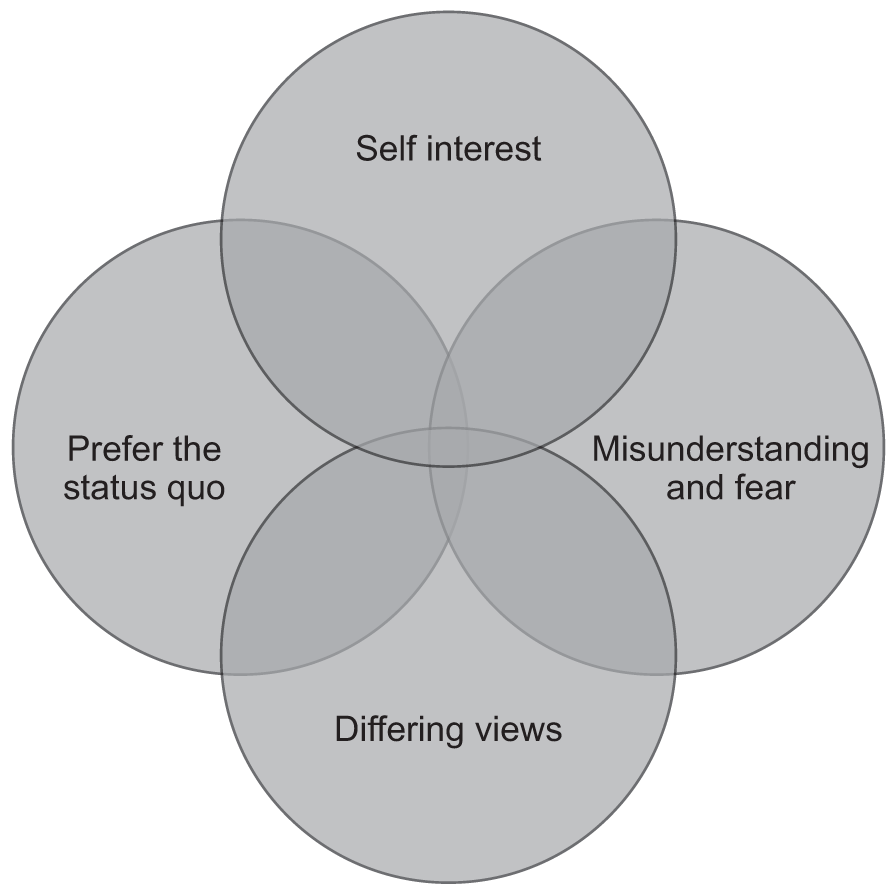Specifications that use this resource:
Teaching guide: Kotter and Schlesinger's reasons for resistance to change
Identifies four types of reason why people resist change.
Model/theory

Key points
The study highlights four reasons why people resist change:- Self-interest – they would be worse off if the change occurred, eg lose their job
- Fear and misunderstanding – they do not trust the managers’ motives
- Different assessments – they understand the reasons for the change but disagree with them; they may think they have a better plan
- Prefer things as they are; they do not like change.
1. Self-interest
They would be worse off if the change occurred (eg lose their job).
2. Fear and misunderstanding
They do not trust the managers' motives.
3. Different assessments
They understand the reasons for change, but disagree with the changes; they may think they have a better plan.
4. Prefer things as they are
They do not like change.
When you can use this
When discussing the issues that are involved in bringing about change, such as introducing a new strategy, you might want to consider:
- which of these motives is significant or most important in any given situation
- how each of these reasons for resistance might best be overcome (see Kotter and Schlesinger’s six ways of overcoming resistance to change).
Where it's been used
Q1, A-level paper 3, 2017